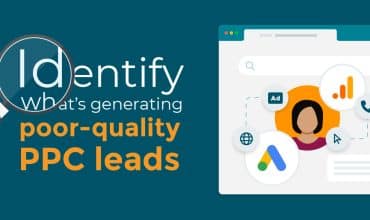Why you shouldn’t sleep on Bing Ads for your care home
When it comes to PPC advertising for care homes, it’s not uncommon to think only of one platform: Google Ads. Google has 93% of the search engine market tied down, while the closest alternative, Bing, has just 3.17%. So it’s understandable marketers think of Google as the go-to platform for paid advertising.
But think again. According to Mediahawk’s research, Bing is growing in importance as a paid ad channel – especially for care homes. In this blog post, we’ll explain why.
Google Ads or Bing Ads for care homes?
If you were to compare Google Ads with Bing Ads for care home marketing, these questions will probably come to mind:
- Which platform has more reach?
- Which is the most cost-effective?
- Which has more targeting capabilities?
- Which will produce more conversions and revenue?
While many marketers see the two platforms as competitors, they actually work best when used hand-in-hand. Google undoubtedly has the majority of the search market, but Bing advertising certainly shouldn’t be forgotten.
In fact, rather than Google Ads vs Bing Ads, marketers should be thinking Google Ads and Bing Ads.
So, let’s take a look at some key reasons why you shouldn’t be sleeping on Bing Ads for your care home.
Bing Ads has less competition and cheaper CPCs
On average, Bing’s cost per click is £1.23 – typically around 30% lower than Google Ads. This is because there’s less overall traffic on Bing, making CPC less expensive.
Of course, whether you’re using Google or Bing, targeting the right keywords is crucial to optimising cost-per-click for your PPC ads. To help with this, wouldn’t it be great to get into the minds of prospects and understand first-hand the words and phrases they would use when searching for care homes?
With speech analytics software, you can listen in to real-world phone calls coming into your care home, helping you understand:
- Why people call you – is it to enquire about a particular type of care, or financing options, or something else?
- How well calls are handled and whether the right outcomes are reached
- Whether all enquiries are being captured correctly, and if not, take action to improve your processes
Bing Ads has more device targeting options
In 2013, Google faced backlash from the paid search community when it enforced the transition to enhanced campaigns, which automatically targeted all desktop, tablet, and mobile devices.
Although users had the option to adjust their bids for mobile devices, they were unable to do so for tablets, and desktop targeting could not be disabled.
In contrast, Bing currently offers the ability for advertisers to exclude desktop and tablet traffic from their campaigns. Advanced advertisers can even target specific mobile operating systems.
Furthermore, Bing provides more comprehensive mobile targeting options and enables bid adjustments for tablet users ranging from -20% to +300%.
Bing Ads reach the right demographic for care homes
Most Bing users fall within the 45-54 age range, which is just right for targeting people with older parents in need of care support.
It makes Bing an interesting proposition for care homes, helping marketers find and engage the right target audience more directly.
According to Bing’s audience share breakdown by gender, it has an almost equal proportion of male and female users, giving marketers a fair chance to target both genders in their PPC marketing activities.
If you want to be absolutely certain your Bing Ads (or Google Ads, for that matter) are reaching the right audience, you’ll need to get on top of your marketing analytics. For care homes that receive a high volume of phone enquiries, that means making the most of call tracking – both dynamic number tracking on your website and a static number on your Bing Places profile, for example – to help you understand which sources are driving the most enquiries.
With Mediahawk, you can have your Google and Bing ads data side-by-side, giving you an instant view of which platform works best for your care home.
Bing Places contains Facebook reviews
Like Google Business Profile (GBP), Bing Places provides an additional channel to bring in new business for your care home.
While Bing Places functions in a similar way to GBP, it also has some key differences – one of which being the way it handles customer reviews.
In Bing’s platform, review data is aggregated from various sources, such as Facebook. It means that any reviews you receive on platforms like Facebook will be pulled into your Bing Places profile and made visible to anyone using the Bing search engine.
Compared to GBP, where people can write reviews directly onto your profile, Bing automatically compiles any reviews you receive for your customers to see.
Making Bing Ads work for you
If you’re considering using Bing Ads for your care home, you’ll want to make sure that it’s generating a good return for your marketing spend.
This is easily achievable with marketing analytics software, which helps to de-risk your investment and give you the reassurance of seeing exactly how well your ads are performing so you can adjust strategy and budget whenever you need to.
Subscribe to Mediahawk
"*" indicates required fields

Discover the key trends for care home marketers in our latest report to help guide your marketing strategy and increase occupancy.



